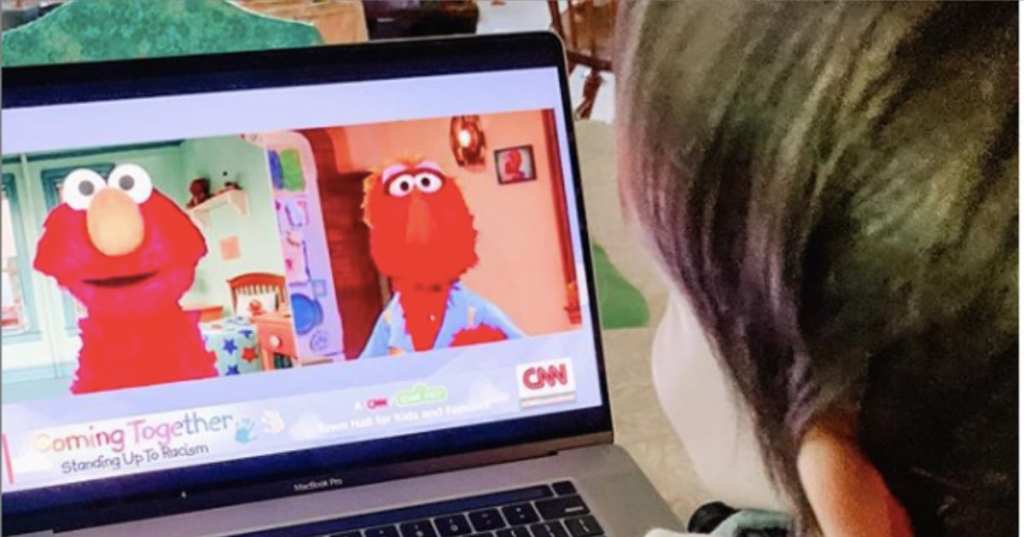There is so much going on in the world today, so much that we and our kids are trying to process and assimilate, that we could all use a little help bringing it down to a child’s level.
CNN thought so, too, and so they booked some characters from Sesame Street to come on and talk about some sensitive topics.
Photo Credit: Polygon
The first one was about the virus that’s disrupting everyone’s lives, and it was so well-loved that they asked Elmo’s dad to come back and speak to children about racism, what it means, and how the protests are trying to address and improve the situation for hundreds of thousands of Americans.
It can be hard to find ways to talk to kids about nuanced ideas like racism and protest, but since morals, values, and beliefs can begin to stick with children at very young ages, it’s important to talk to your kids early and often. Sesame Street has some fifty years of experience doing just that, and now they’re bringing it to cable news.
I don’t know about you, but I literally bawled listening to Elmo’s dad, Louie, explain what’s happening in American to his son.
It began with Elmo witnessing a Black Lives Matter protest, and asking his father what’s going on.
Louie explains,
“They’re gathering together to protest. A protest is when people come together to show they are upset and disagree about something. They want to make others aware of the problem.
Through protesting, people are able to share their feelings and work together to make things better.”
When Elmo asked why the protestors looked upset, or why they were sad, Louie had a perfect answer for that, too.
Louis responds…
“They are sad and upset and they have every right to be, Elmo.
People are upset because racism is a huge problem in our country.”
That answer naturally led into a question about racism, and then one about why people care what color people are on the outside.
And here’s where my tears began in earnest, y’all.
His dad responds…
“I know Elmo, but not all streets are like Sesame Street. On Sesame Street, we all love and respect one another.
Across the country, people of color, especially in the black community, are being treated unfairly because of how they look, their culture, race and who they are. What we are seeing is people saying enough is enough.
They want to end racism.”
As with every important talk with young kids, it’s essential to give them actionable tasks they can do to help, and to put your advice into play on a daily basis. Louie said Elmo could support his friends by “learning and talking about what is happening and take action.”
Abby Cadabby also showed up to talk a bit about white privilege, explaining how she had seen Big Bird get bullied for being yellow and big, something most kids who have been to school can relate to on some level.
Jennifer Harvey, author of Raising White Kids: Bringing Up Children in a Racially Unjust America, says,
“White communities are not negatively impacted by racism, and sometimes we get unjust access to things just because we’re white, not because we deserve it.
The most dangerous kind of white privilege is to think that we can sit this justice struggle out.”
Atlanta Mayor Keisha Lance Bottoms, who is rumored to be on the short list for a vice presidential nomination, also weighed in, telling kids to “keep loving each other. And when you see someone who’s doing something wrong or saying something wrong, say that it’s wrong.”
If you’re struggling with finding a way to talk to your kids about COVID, about racism, about protests, about white privilege or policing, Sesame Street has got you covered.
But I mean, bring the Kleenex. Your kids might have no idea why you’re crying, but the feelings are big and real.
